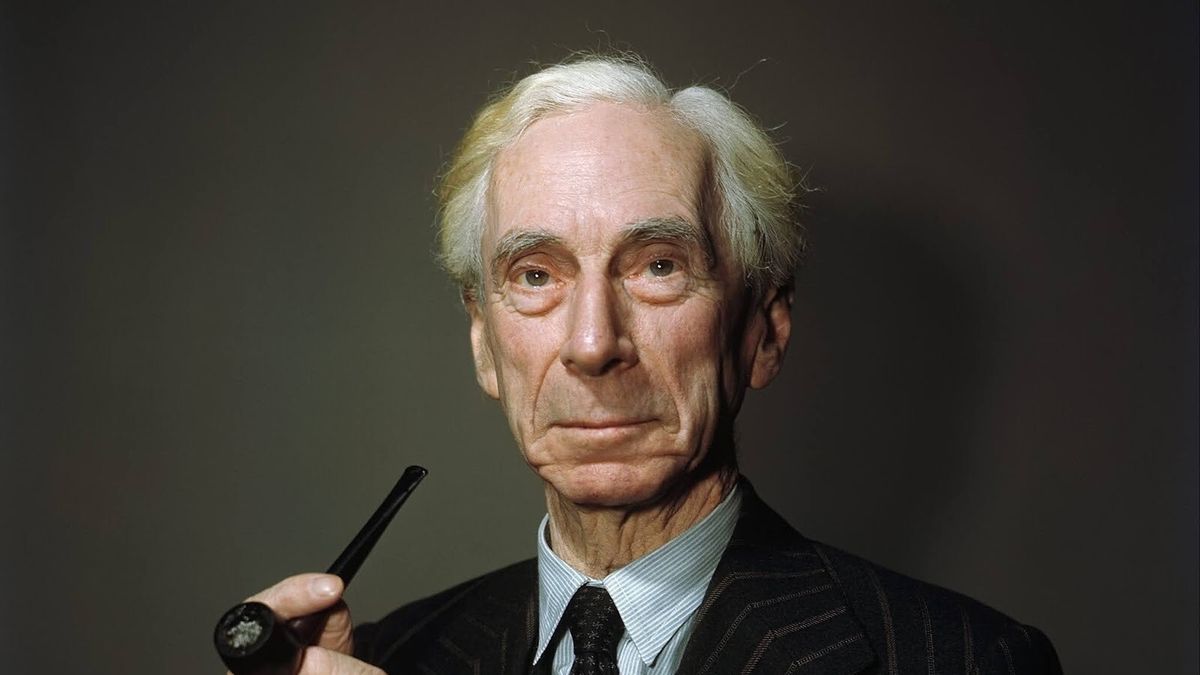Bertrand Russell was a human being to whom the least qualifier that was awarded was that of extravagant. But his firm personality inspired this aphorism in my spirit.
“The worthy suffer but their dignity consoles them”
He was a writer, historian, linguist, doctor of mathematics: in short, a man whose talent and unusual personality made him a curiosity in himself.
He had twenty grandchildren in his four marriages. And he always aroused in his contemporaries an admiring astonishment. Because of the advancedness of his ideas, because he enjoyed complete mental lucidity until the end of his long life –98 years-, because of his unique personality.
This man was born in England -in Wales specifically- on May 18, 1872.
His grandfather was Prime Minister of England. Bertrand Russell was a kind of Ramón Menéndez Pidal, another of my spiritual idols, three years older than Russell and Spanish –Galician- from La Coruña.
Russell was a rebel and for that reason he was much fought.
And they also resembled each other in their fresh longevity. Menéndez Pidal lived 99 years (one year more than Russell).
Bertrand Russell had created in England (like Tagore in India) a revolutionary school for that time. For the time?, even for today.
He practiced a carefree, free pedagogy, without obligation of attendance for the students, without exams, without homework, looking for in the boy the interest of knowledge for the sake of knowledge itself. He was opposed by the press, the government, and vested interests. Because a microbe can push a slander and a giant cannot stop it.
Twelve years of struggle and final failure, due to the interests that moved against him, could never convince him that his thesis of raising children, giving absolute priority to their happiness, without detriment to their preparation intellectual, it was wrong.
Perhaps the high dose of intelligence and humanity of this superior spirit was too far ahead of his time!
A thousand attitudes define his curious and multifaceted personality.
In 1916 – he is 44 years old – the First World War takes place. Bertrand Russell pleads pacifist. He is one of those who would only make war on war. With ten of his grandchildren, he sits for hours in front of the Royal Palace in a demonstration of repudiation of violence, of wars, in which he only kills and dies, although many speak of triumph.
He goes to jail for three months.
In 1920 he traveled to Peking, China. And there he sends a cable announcing his own death (he had already notified his family of the joke). He was curious to read his own obituary, which he was able to do when he returned.
He wrote one book per year from 1900 to 1970 and lived to be 98 years old. He died in 1970. He wrote then 70 books.
The last curiosity. Moments before dying, she told her doctor, does he know someone who died singing?
No, said Dr.
– Well, you’re going to meet him now. And she began to sing an old Welsh song. She couldn’t finish it. Her heart had stopped beating.
I don’t know of a more curious writer’s life –as well as diversified- than that of Bertrand Russell.
On the other hand, he was also “Nobel Prize for Literature” in 1950.
Three years later another man from Great Britain won it, a politician who had been Prime Minister of England a few years before, Winston Churchill.
Bertrand Russell once wrote:
“There are unbalanced people, although not recognized as such, who sometimes govern great powers. The success of madness in politics and letters is one of the phenomena that characterize our age. The upper link of this madness, which is sometimes crowned with success, is the desire for power, strength and greatness.
A week before he died he expressed:
“Perhaps I have conceived theoretical truth in the wrong way. Perhaps I mistakenly believed that the road to a world of free and happy human beings was shorter than it really is. But I did not err in that it is worth living to approach those ends…”
Thinkers like Bertrand Russell are one of those who open a furrow, through which, with the passing of time, humanity will walk.
And to this human being in whom the principles were his north, I wanted to dedicate this aphorism that says:
“Only upright can you sow principles.”
Source: Ambito
David William is a talented author who has made a name for himself in the world of writing. He is a professional author who writes on a wide range of topics, from general interest to opinion news. David is currently working as a writer at 24 hours worlds where he brings his unique perspective and in-depth research to his articles, making them both informative and engaging.




